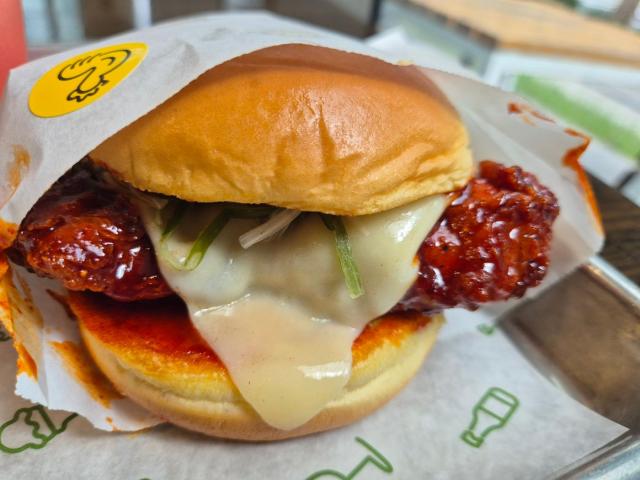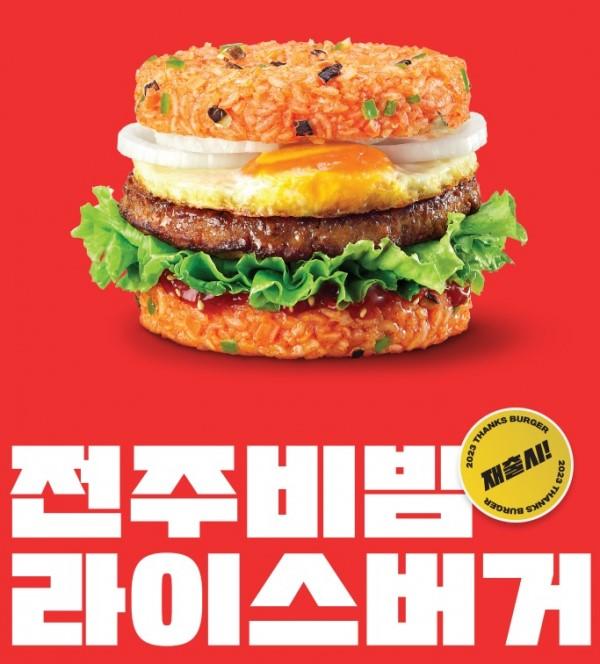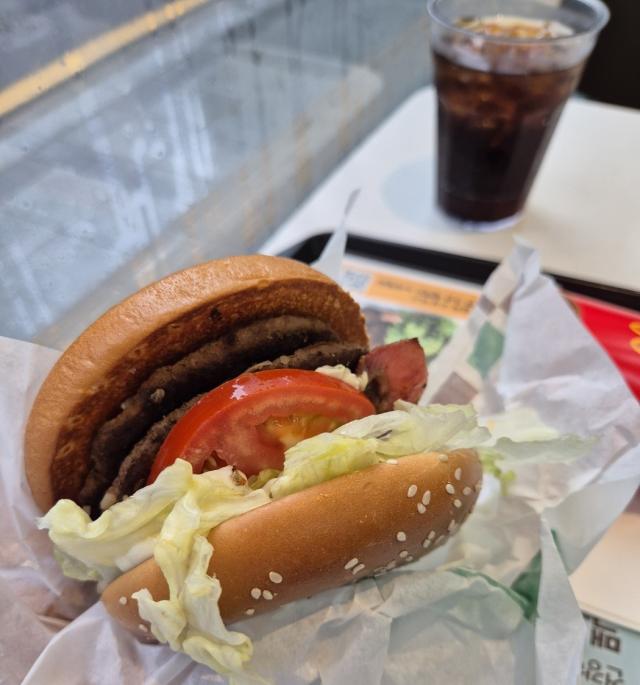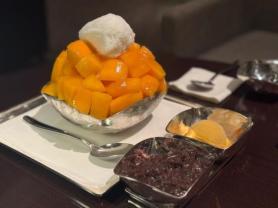
Last month, Korean burger franchises Lotteria and No Brand Burger added new menus along with varied versions of their previous offerings, featuring bulgogi (Korean-style marinated beef) and kimchi (Korea's traditional fermented cabbage), either blended into the patty or used as toppings.
"Intrigued by its hefty price tag of over 8,000 won (US$6), I decided to try Lotteria's Hanwoo Bulgogi Burger," said Kim Seong-young in his late 20s. "It was a splurge, but totally worth it."
American fast food giants here shortly followed suit. McDonald's and Shake Shack launched burgers with local flavors like Korean chill peppers and dakgalbi (spicy stir-fried chicken), respectively, to compete with their Korean rivals. Shake Shack also sells a shake with three ounces of alcohol featuring makgeolli or Korean rice wine. The shake is available only at a face-to-face counter and requires a valid ID.
"We wanted to blend the spicy flavors that most Koreans enjoy with Shake Shack's signature style, featuring sources for spicy stir-fried chicken mixed with shredded green onions, perilla leaves and mozzarella cheese," said a staffer of the American trendy burger chain in central Seoul last Friday. "Foreign visitors often inquire about the level of spiciness, but many of them are undeterred by the spicy flavor," he added.
"As a huge fan of Shake Shack always searching for new flavors, I couldn't resist trying this fusion burger," said Shin Hyun-soo, in her early 20s.
Korean fast food chains began expanding their horizons in the late 1990s to cater to the ever-changing tastes of Koreans and their fickle palate. Lotteria released burgers using rice patties instead of traditional bread buns in 1999, which were an instant hit and their popularity led to a variation mixed with kimchi in 2001.

"Lotteria's rice burger instantly reminded me of the savory flavors of bibimbap or a rice bowl with seasoned vegetables," said Ha Min-ji in her mid-20s. "The sauce tastes almost like gochujang or red pepper paste that all Koreans love."
Likewise, McDonald's has been running a campaign called "Taste of Korea" since 2021 as part of its efforts to help farmers in rural areas by using more local agricultural products.
Under the campaign, the American flagship Golden Arch chain has offered various burgers customized to Korean tastes, featuring ingredients like green tea from Boseong, South Jeolla Province, green onions from the southwestern island of Jindo, and chili peppers from Jinju, South Gyeongsang Province.

"We have bought five tons of chill peppers from Jinju so far for the hot-flavored burger, as we believe increase in sales would help stimulate the local economy," said Yang Hyeong-geun, an executive from the burger chain.
"Introducing burgers that fuse elements of Korean cuisine can be advantageous for franchise chains, appealing to both younger customers and those with more conservative tastes," Lee Young-ae, a professor at Incheon National University, told AJP last month.
"These days, mixing something totally unexpected is considered often trendy among younger people, encouraging them to explore new flavors of burgers," she added.
Copyright ⓒ Aju Press All rights reserved.


